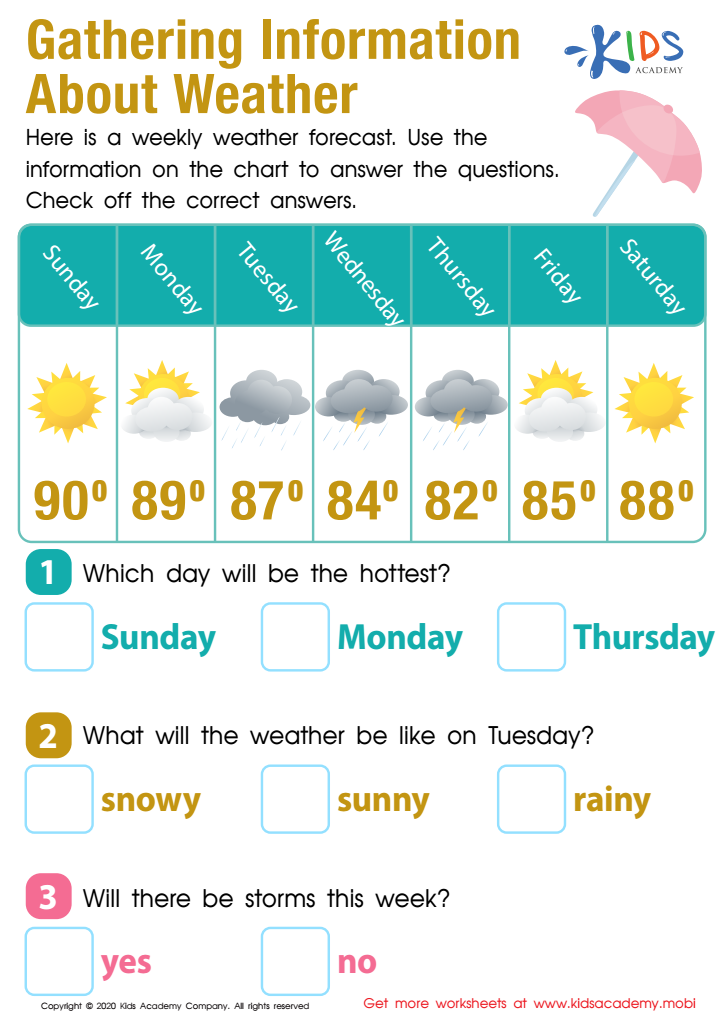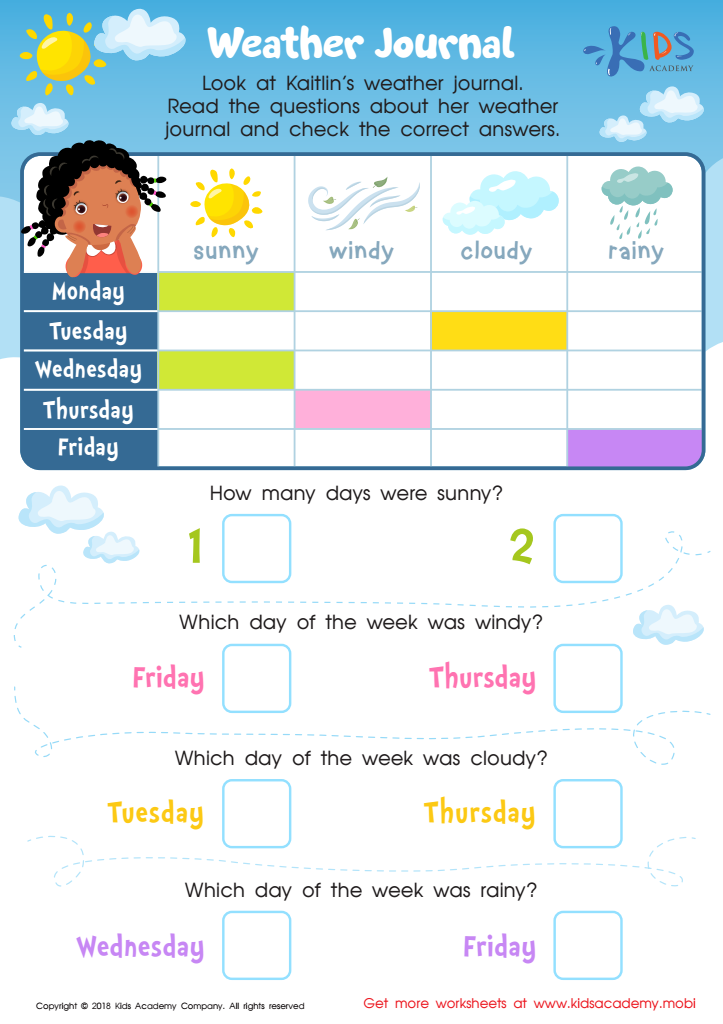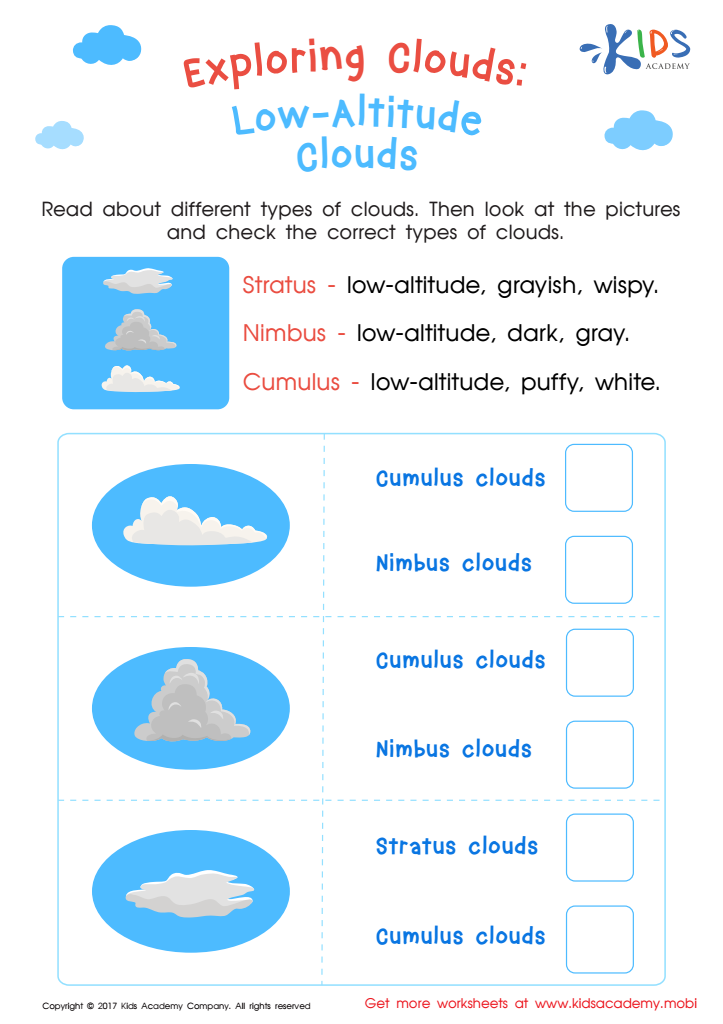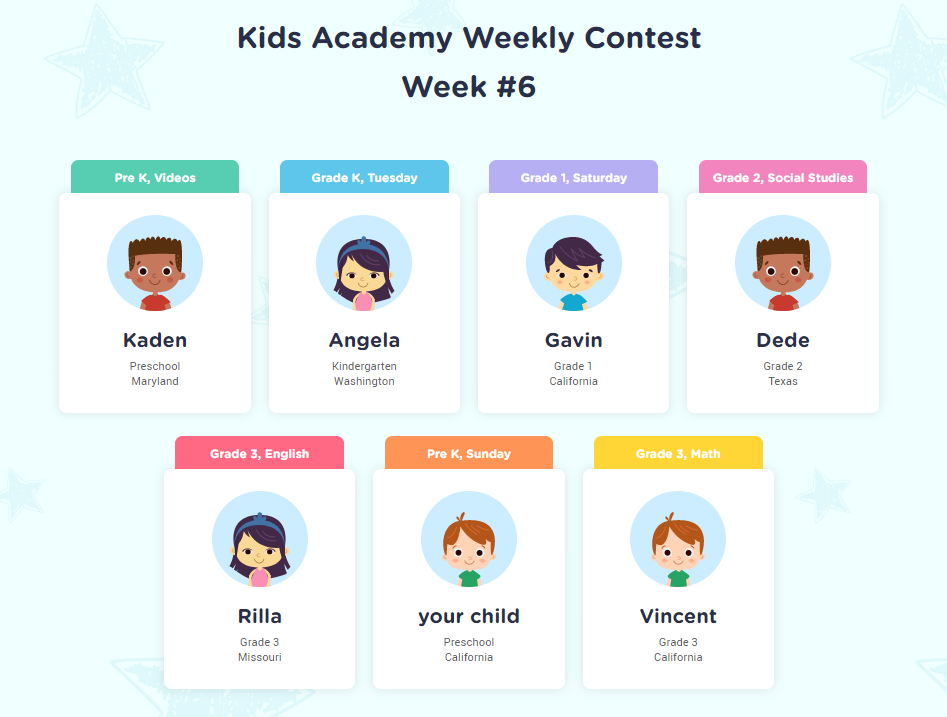Understanding weather Science Worksheets for 6-Year-Olds
3 filtered results
-
From - To
Explore the fascinating world of weather with our "Understanding Weather Science Worksheets for 6-Year-Olds." Perfectly designed for young learners, these engaging worksheets help children discover the secrets of the sky. Through interactive activities, kids will learn about different weather conditions, recognize patterns, and comprehend the basics of weather forecasting. Our colorful and educational printables make complex topics easy and fun, ensuring a solid foundation in early science education. Foster your child's curiosity and boost their learning skills with our comprehensive weather worksheets. Start your journey into the wonders of weather today!


Gathering Information About the Weather Worksheet


Weather Journal Worksheet


Exploring Clouds: Low Altitude Clouds Printable
Understanding weather science is crucial for 6-year-olds as it lays the groundwork for broader scientific comprehension and environmental stewardship. At this formative age, children are naturally curious about the world around them, and weather is a tangible, relatable topic that can spark their interest in science. Teaching weather science helps children develop critical thinking and observational skills. They learn to notice patterns, make predictions, and understand cause-and-effect relationships, which are foundational skills in scientific inquiry.
Moreover, an early grasp of weather concepts like temperature, precipitation, and seasonal changes can educate children on safety practices. For example, understanding the significance of weather forecasts can help them prepare for severe weather conditions, leading to safer behaviors.
Additionally, fostering an appreciation for weather and the environment can inspire responsible attitudes toward nature. Children who understand how weather affects plants, animals, and human activities are more likely to develop a sense of environmental responsibility. They may grow up to advocate for sustainable practices and take action to mitigate the impacts of climate change.
Parents and teachers play a vital role in conveying these concepts. By integrating weather science into a child's learning experience, they not only satisfy the child's innate curiosity but also equip them with essential knowledge and skills that serve as a foundation for lifelong learning and responsible citizenship.

 Assign to My Students
Assign to My Students















